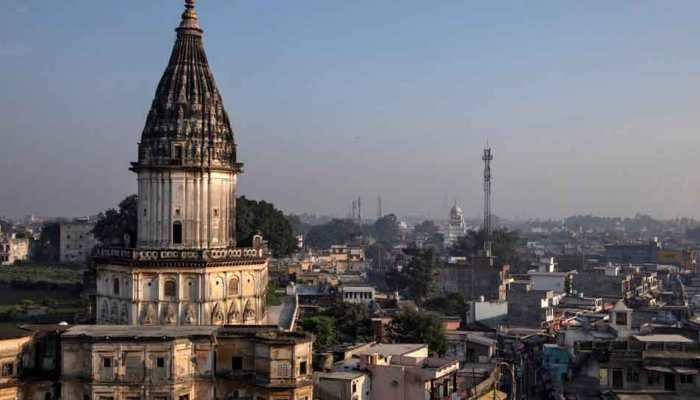SC Constitution bench to hear review petitions against Ayodhya verdict on December 12
The SC bench headed by Chief Justice SA Bobde and comprising Justices DY Chandrachud, Ashok Bhushan, SA Nazeer and Sanjeev Khanna will start the in-chamber proceedings at 1.40 PM.
Trending Photos
)
A five-judge Constitution bench of the Supreme Court (SC) is scheduled to hold an in-chamber hearing on Thursday (December 12) to decide whether to hear review petitions challenging the top court's verdict in Ram Janambhoomi-Babri Masjid case in open court or not.
The SC bench headed by Chief Justice SA Bobde and comprising Justices DY Chandrachud, Ashok Bhushan, SA Nazeer and Sanjeev Khanna will start the in-chamber proceedings at 1.40 PM. Notably, Justice Khanna is the only judge who was not a part of the five-judge Constitution bench that had delivered the verdict in this case on November 9 paving way for the construction of Ram temple at the site. Khanna replaces the former Chief Justice of India Ranjan Gogoi.
If the apex court decides to go for an open court hearing, then the top court will hear the arguments of all parties heard again, and if the bench decides against it, the reconsideration petitions will be dismissed.
So far, 18 petitions have been filed in the Supreme Court challenging its historic decision and on Monday (December 10) a group of 40 social workers also filed the review plea challenging the SC verdict in the Ayodhya case. Among the social workers are Harsh Mander, Nandini Sundar, and Pravat Pattnaik.
"We have filed the reconsideration petitions seeking a modification of the November 9 verdict. The petition has demanded that the top court should reconsider its November 9 verdict with respect to the Ayodhya verdict," Mander was earlier quoted by ANI.
On November 9, the SC had delivered its verdict in Ayodhya case saying that the disputed 2.27 acres of land site in Ayodhya belongs to Hindu party and ruled that Sunni Waqf Board will get 5-acres of land at an alternative site for building a mosque. The apex court clarified that either the Central government can give the five-acre land to the Sunni Waqf Board from the nearly 68 acres of land which it had acquired in 1993 under the Acquisition of Certain Area at Ayodhya Act or the state government could hand over the piece of land at a "suitable prominent place in Ayodhya".







)
)
)
)
)
)
)
)
)
)
